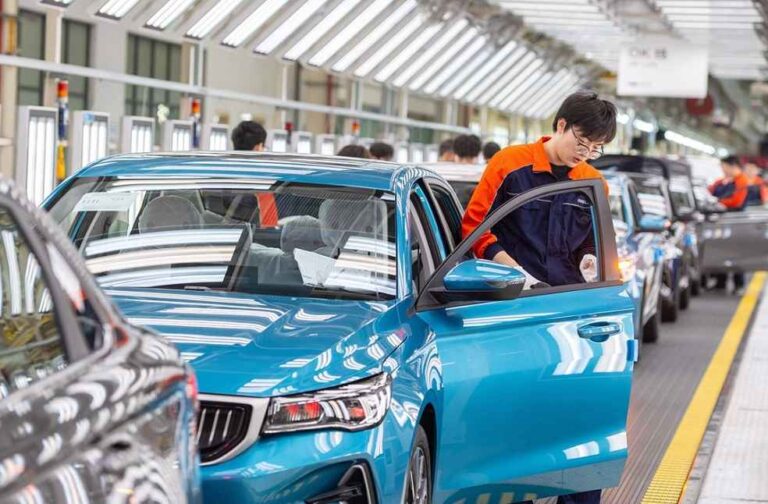The United States and European Union implementing protective measures against Chinese auto exports, sparking a contentious debate that underscores the complex interplay between national security, economic imperatives, and international solidarity.
China’s Counter to Western Protective Stances
China’s forceful rebuttal to the US and EU’s protective moves emerged prominently on Tuesday. The Foreign Ministry’s spokesperson, Mao Ning, articulated a defense of China’s automotive industry’s exponential growth, emphasizing the provision of cost-effective, superior products to the global market.
This argument gains substantial backing from the China Association of Automobile Manufacturers’ January report, showcasing a 47.4 percent surge in vehicle exports year-on-year, totaling 443,000 units. Such statistics not only highlight China’s manufacturing prowess and innovation but also its significant role in propelling the global shift towards green and low-carbon mobility, with a notable third of its automotive exports being electric models.

Scrutiny from the US and EU: A Closer Look
Beneath China’s advancements in the automotive domain lie growing apprehensions within the US and EU concerning the broader ramifications of these exports. US Commerce Secretary Gina Raimondo’s concerns over the potential national security implications of electric vehicles (EVs) manufactured in China have precipitated discussions on additional tariffs on these imports. Concurrently, the European Union’s investigative forays into China’s automotive exports, including an anti-subsidy probe into Chinese EVs, mirror worries over unfair competitive practices and state-subsidized dominance.
The Essence of Global Economic Dynamics
This contention touches upon a pivotal inquiry regarding the trajectory of global economic integration. China advocates for a paradigm rooted in mutual respect, collaborative progress, and open engagement, contrasting sharply with the unilateral and divisive tactics employed by its critics. This ethos prioritizes harmonizing diverse interests, catalyzing collective advancement, and crafting an economic globalization framework that is universally advantageous and inclusive.

Critiques by observers like Gao Lingyun of the Chinese Academy of Social Sciences, decry the US and EU’s investigations as emanating from a dominion-oriented, singular perspective rather than a commitment to global welfare. Such positions, they argue, not only obstruct China’s ascendancy but also impede the flourishing of global economic wellbeing.
Prospective Pathways
This discourse transcends mere trade disagreements, embodying the larger currents shaping the ethos of international relations and economic globalization in this era. The resolution to this debate carries implications extending beyond the automotive industry, touching upon the principles governing international trade policies and the ethos of global collaboration in the contemporary world.
LATEST | Ford Faces UAW Strike Threat in Kentucky Over Contract Gridlock





